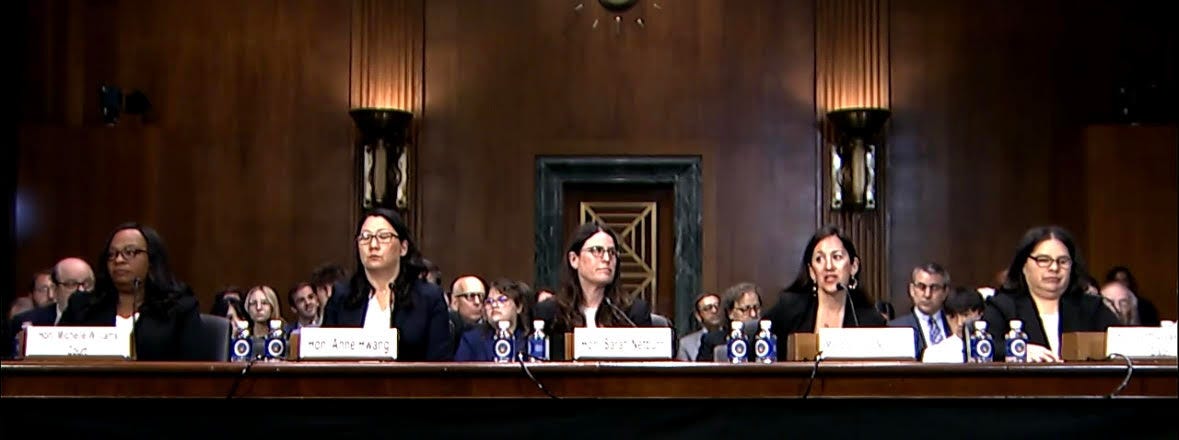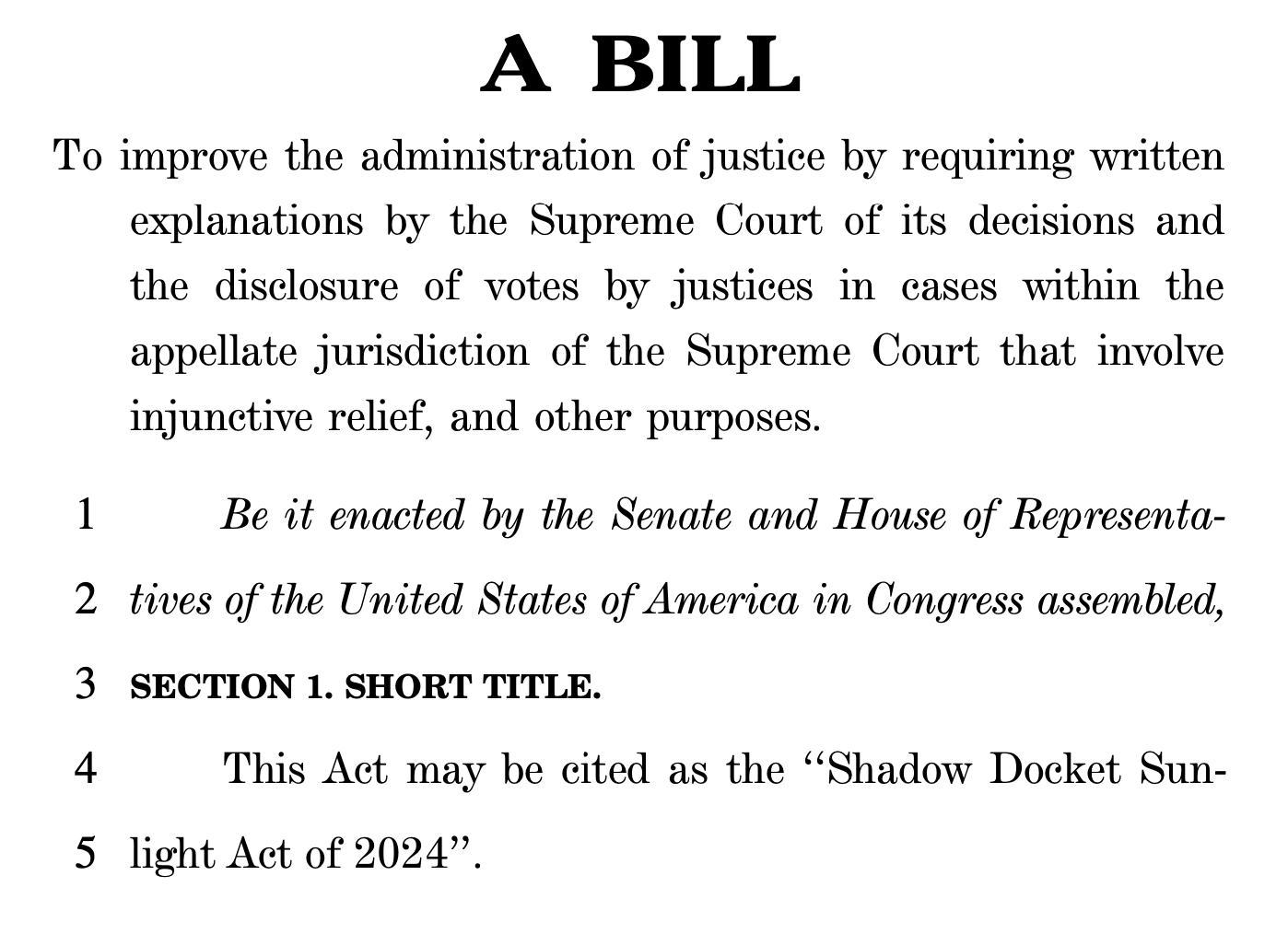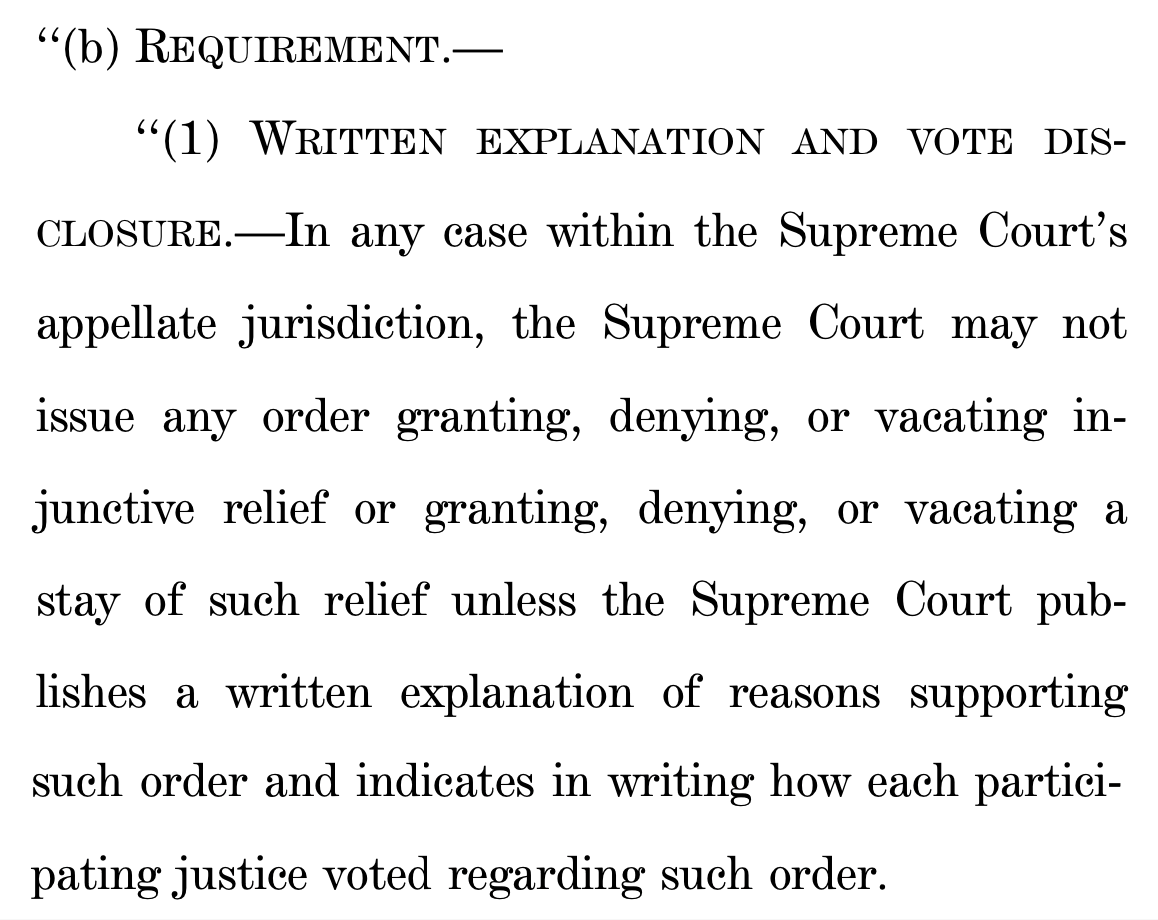Two hundred judges, more nominees moving, and a shadow docket bill
Judges, judges, judges — as it must be. Also: Law Dork continues to be in the news.
A little past noon Wednesday, the U.S. Senate confirmed Angela Martinez to be a judge on the U.S. District Court for the District of Arizona on a 66-28 vote.
Martinez is the 200th of President Biden’s judicial nominees to be confirmed by the Senate, and it is a milestone that the administration and Senate Democratic leadership is — and should be — celebrating.
Earlier Wednesday, the Senate Judiciary Committee also held a committee hearing on five other district court nominees — seeking to increase those Biden appointee numbers further. (During the Trump administration, 234 judicial nominees were confirmed.)
It is both essential that Biden and the Senate do so — and also nowhere near enough to offset the imbalance in and potential dangers from our federal judiciary.
Sen. Dick Blumenthal is going in another direction as well, and it’s one that we also should give our attention.
Along with a dozen other Democrats, Blumenthal is introducing legislation on Wednesday aimed at bringing some transparency to the U.S. Supreme Court’s shadow docket.
No, it’s not going to become law this year. Yes, it is good that he’s doing it — and is something that Democrats should be doing more of this year, for several reasons.
First, the bill: It is the Shadow Docket Sunlight Act of 2024. And Blumenthal is joined by Sen. Chuck Schumer, the Senate majority leader; Sen. Dick Durbin, the Senate Judiciary Committee chair; six other members of the Senate Judiciary Committee, Sens. Cory Booker, Mazie Hirono, Amy Klobuchar, Alex Padilla, Peter Welch, Sheldon Whitehouse; and Sens. Jeff Merkley, Bernie Sanders, Tina Smith, and Ron Wyden.
It’s a pretty simple bill, adding a section to the U.S. Code (Section 2285) that would require the Supreme Court to issue “a written explanation of reasons supporting” any injunctive relief or stays of injunctive relief granted as part of its appellate jurisdiction and the votes of the justices on those decisions.
The requirement would also apply to orders issued in to Administrative Procedure Act challenges. It would exclude “administrative or scheduling matters.”
A second part would require the director of the Federal Judicial Center to submit an annual report to Congress “assessing the extent of compliance or non-compliance with the requirements” of the bill.
The bill raises questions — I want to work through, for example, the potential effect such a rule could have on death penalty cases — and likely could use some tinkering once those questions are considered, but it is important that Democrats introduce legislation like this — and that they do so now.
As with any judicial reform discussions, legislation is a helpful tool for education, discussion, advocacy, and — yes — campaigning. In that sense alone, this is good to see.
That is, of course, necessary for big moves like term limits and court expansion.
But, additionally, this is important preparatory work for smaller moves. I know that much discussion about the courts — including from me — right now is often about extremism on the courts or what happens should Trump win in the fall. And, we do need to deal with and prepare for that — but the Democrats also must be prepared should things go well.
It is key that the actual creation and promotion of smaller, more incremental judicial reform legislation happens now. There should be a dozen or more brief bills like this, worked on and written out this year — as others already have — so that questions can be raised and changes can be made now.
Then, if Democrats do have a chance to make some moves in the future — by passing standalone bills, adding text into bigger bills, or otherwise — the legislation will be tested and ready to go.
More Law Dork in the news
On Tuesday night, Chris Hayes covered the questions surrounding Alito, including Law Dork’s coverage of Alito’s stock trades.
Tuesday, meanwhile, had started off with Pod Saves America discussing the Supreme Court, Alito, and Law Dork’s coverage.
Elsewhere
Don’t miss Judd Legum’s report on another effort to inaccurately portray crime and restrict the citizenship of people in Washington, D.C.











Thank you for this report,
Chris. I hadn't seen anything
about it and it's important to
shine light on the shadow
docket.
I wonder if Stephen Vladeck has some thoughts.
I welcome explanations & welcome the bill. I am open to discussion on suitable tweaks. Meanwhile, I think the liberals on SCOTUS should have separate statements more often, especially in death penalty cases. Just to promote a hobbyhorse of mine.